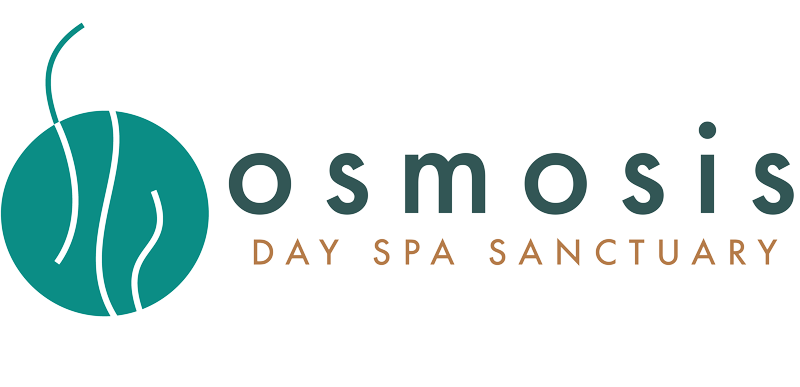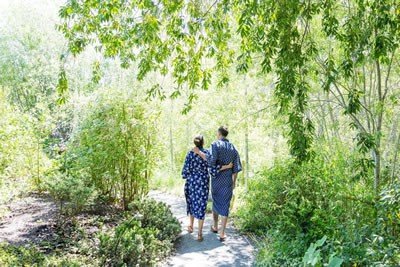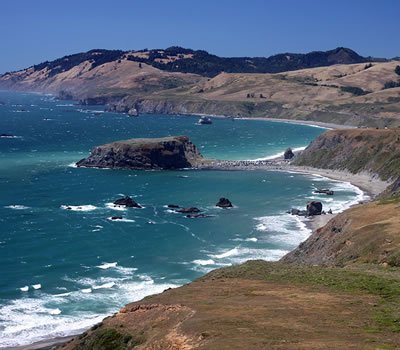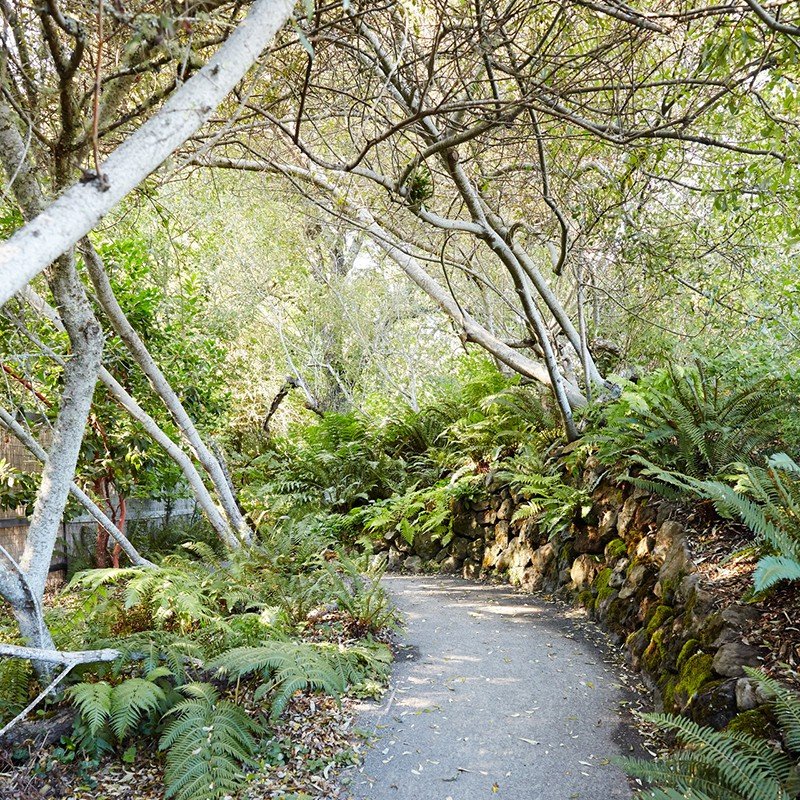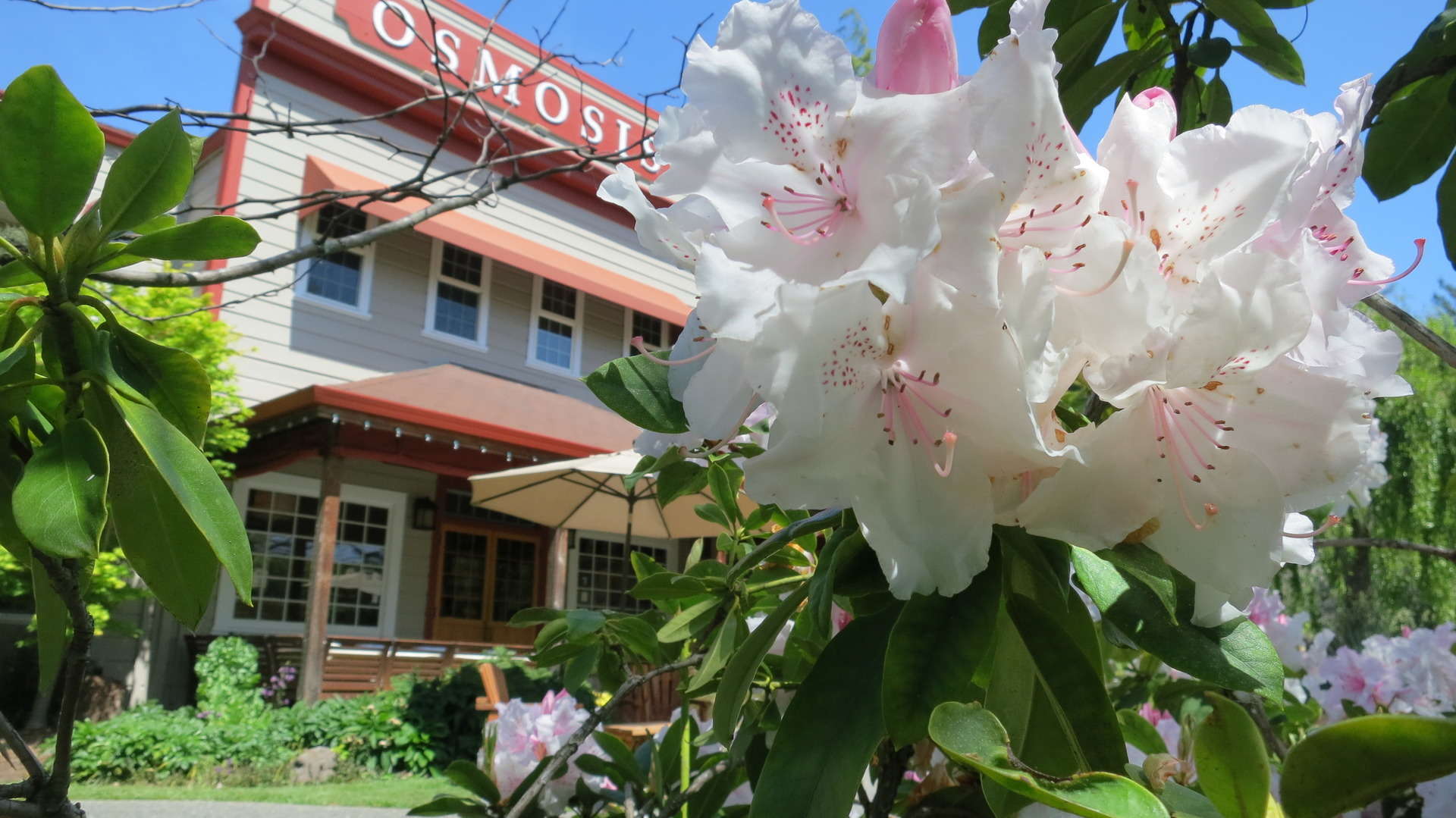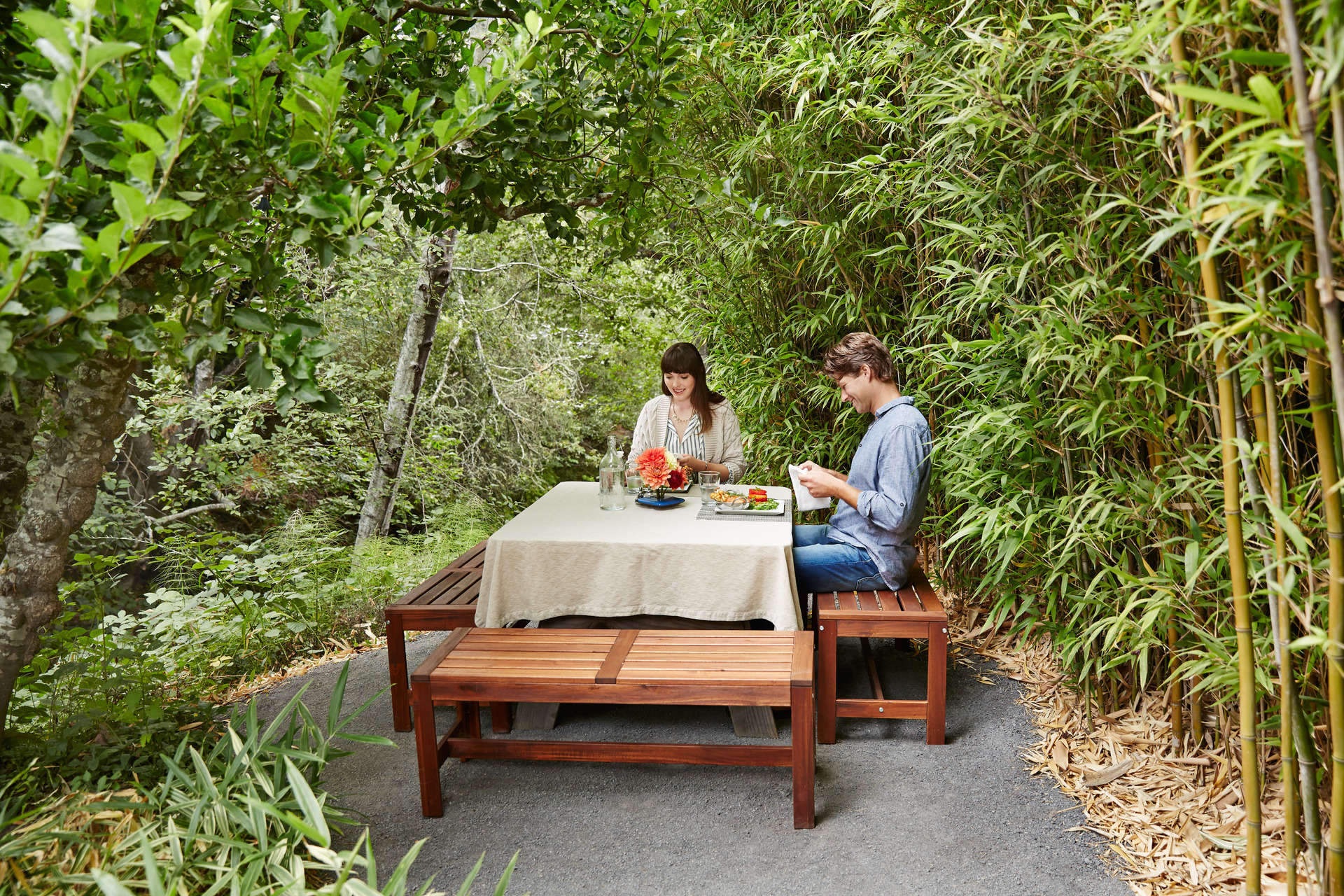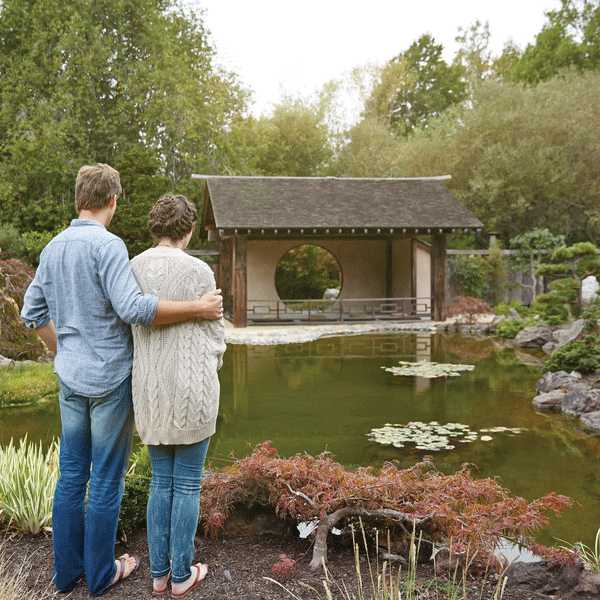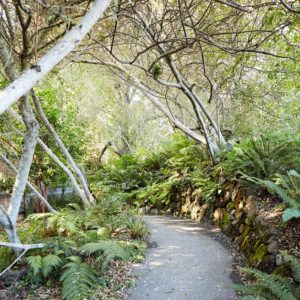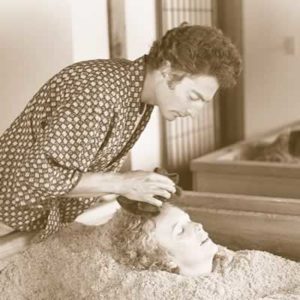San Francisco Chronicle: Spa’s food in sync with its mission
The San Francisco Chronicle wrote this piece about the unique food program and delicious offerings at Osmosis.
by Carey Sweet
The spa menu at Osmosis Day Spa Sanctuary in Freestone offers the usual massages and facials. But the Zen-inspired retreat of meditation gardens, creekside tea services and pagodas amid whispering trees offers the unexpected, too: the opportunity to ferment up to your neck in wooden tubs filled with finely ground cedar, rice bran and plant enzymes.
So it’s not surprising that the lunch menu here is no ordinary affair, either. In a novel approach to spa cuisine, food is produced in partnership with Ceres Community Project, a project from Sebastopol that trains teenage chefs to craft food as “medicine for the community.”
Specifically, Ceres provides nourishing meals to people with cancer and other life-threatening illnesses while seeking to educate the public about the connection between food, healing and wellness.
Three years ago, Osmosis owner Michael Stusser approached Ceres to cook for his luxury oasis, where clients come to indulge in the baths he discovered in Japan for soothing pain, calming nerves, detoxifying and brightening skin. The nonprofit provided some 1,000 meals a year, all cooked by its students.
Then in March, Stusser and Ceres Executive Director Cathryn Couch came up with a more efficient idea: The cooking would be taken over by Fork Roadhouse and Catering, a restaurant just opened by chef Sarah Piccolo in Sebastopol. Piccolo provides the lunches at cost to Osmosis, so the spa can continue to pass along a portion of each sale to Ceres.
“Because Ceres runs their kitchen with volunteers, they could only make up lunches for Osmosis two or three times a week,” says Stusser. “Keeping the orders consistent with our guest volume was always a guessing game, and there was waste.”
Plus, the philosophy of Osmosis, Ceres and Fork is pristine ingredients. Ceres receives daily deliveries from purveyors such as the nonprofit WHOA Farm in Santa Rosa — $14,000 worth of WHOA food last year alone, according to Couch — while Fork works with artisan producers like FEED Sonoma, a business that purchases from 50 small farms in Sonoma County and delivers micro-orders to local buyers.
“With Fork, we can order and receive lunches daily, eliminating waste,” said Stusser. “It keeps everything so fresh and still provides a very helpful weekly cash flow to Ceres.”
For spa clients, the community benefit may just be icing on the tofu. Lunch costs $20 and can be pre-ordered at booking. Menus offer a broad range of items, such as miso-glazed chicken with rice noodle-kale-arame kelp salad; coconut vegetable masala over brown rice; or tempeh with orange, ginger and lemongrass sauce over sushi rice and salad.
“It’s a natural, since Ceres is strongly aligned in our values for a core focus on health, wellness and vitality,” Stusser said. “And our guests tell us Fork is delicious.”
Carey Sweet is a Bay Area freelance writer. E-mail: food@sfchronicle.com
